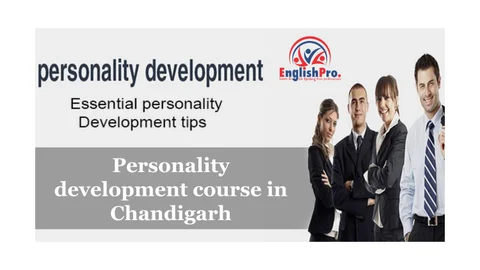How to Start Your Personality Development Journey?

Introduction
In 2025, personality development has emerged as a vital part of holistic education and career success. It’s no longer just about good communication—it’s about emotional intelligence, leadership, adaptability, and critical thinking. Whether you’re a student, job-seeker, or professional, investing in your personal growth can unlock countless opportunities. If you’re wondering where to begin, this guide walks you through the essentials of starting your personality development journey, step by step, with modern approaches and proven techniques for lasting transformation.
Personality development refers to the process of enhancing and evolving one’s personal traits, behaviors, mindset, communication skills, and overall character to become a more confident, effective, and well-rounded individual. It involves both inner growth (like self-awareness, emotional intelligence, and mindset) and external skills (like communication, etiquette, and leadership).
Key Aspects of Personality Development
-
Self-Awareness
Understanding your strengths, weaknesses, thoughts, and emotions. -
Confidence Building
Developing self-belief and reducing fear in social or professional settings. -
Communication Skills
Improving how you speak, listen, and express yourself clearly and respectfully. -
Emotional Intelligence
Managing your own emotions and understanding others’ feelings effectively. -
Positive Thinking & Mindset
Shaping your thought patterns to handle challenges with resilience and optimism.
Why Personality Development Matters Today?
The global workforce is evolving rapidly. Employers are not just looking for technical skills—they want individuals who are confident, collaborative, and self-aware. In education, too, personality development is becoming a core part of curricula, particularly in online and hybrid learning environments.
Key reasons to prioritize personality development in 2025:
- Increased competition: Soft skills are often the differentiators between equally qualified candidates.
- Remote and hybrid work: Communication and self-motivation are more critical than ever.
- AI and automation: Human-centered skills like empathy, creativity, and critical thinking are irreplaceable.
Step 1: Start with Self-Awareness
Before any transformation can occur, you need to understand yourself.
Ways to increase self-awareness:
- Reflect daily: Use a journal to track your emotions, reactions, and growth.
- Ask for feedback: Request honest insights from friends, mentors, or colleagues.
- Personality assessments: Tools like MBTI, DISC, or CliftonStrengths can reveal how you think, work, and relate to others.
Understanding your strengths and weaknesses lays the foundation for meaningful development.
Step 2: Set Clear Personal Goals
Your personality development should be intentional, not accidental.
Define goals in key areas:
- Communication skills: Become a better speaker and active listener.
- Confidence: Overcome fear of public speaking or self-doubt.
- Time management: Improve discipline and focus.
- Emotional intelligence: Learn to manage stress and build empathy.
Use SMART goals (Specific, Measurable, Achievable, Relevant, Time-bound) to stay on track.
Step 3: Build Key Skills Through Practice
Learning happens by doing. Choose one area at a time and commit to daily or weekly practice.
Practice ideas:
- Join public speaking groups (e.g., Toastmasters)
- Read books on personal growth (like Atomic Habits or The 7 Habits of Highly Effective People)
- Watch TED Talks to model effective communication
- Enroll in structured training like [Personality development classes in Chandigarh] for expert-led guidance and real-time feedback
Consistency is more powerful than intensity. Even 15 minutes a day can lead to noticeable change over time.
Step 4: Leverage Digital Tools and Courses
In 2025, technology makes personality development more accessible than ever.
Recommended tools:
- Mindfulness apps like Headspace or Calm
- Habit trackers like Habitica or Streaks
- Skill-building platforms like Coursera, Udemy, or LinkedIn Learning
- AI coaching assistants that give feedback on tone, speech, and emotional cues
These tools can supplement offline efforts and accelerate your growth.
Step 5: Surround Yourself with Growth-Oriented People
Environment plays a huge role in your development. Being around like-minded individuals encourages accountability and inspiration.
Create a support system:
- Join mastermind groups or clubs
- Follow thought leaders on LinkedIn or YouTube
- Find a mentor who has walked a similar path
- Consider group-based learning options like Personality development classes in Chandigarh, where peer interaction enhances your experience
Remember: Your network influences your mindset, motivation, and even your confidence.
Step 6: Measure Progress and Stay Adaptable
Personality development is not a one-time task—it’s a lifelong journey. Celebrate small wins and be open to course corrections.
Track your development:
- Keep a monthly journal of what’s improved and what still needs work
- Revisit your goals every quarter
- Use feedback as a tool for reflection, not criticism
Adapt your learning style as you evolve. What works for you now may change as your career and life circumstances shift.
Conclusion
Personality development in 2025 is more than a buzzword—it’s a necessity in both personal and professional spheres. By cultivating self-awareness, setting goals, practicing consistently, leveraging technology, and seeking out the right communities, you can shape a confident, impactful version of yourself. Whether through self-learning or enrolling in structured programs like Personality development classes in Chandigarh, the journey is as enriching as the destination. Have questions or want to share your experience? Drop a comment below and let’s grow together!




